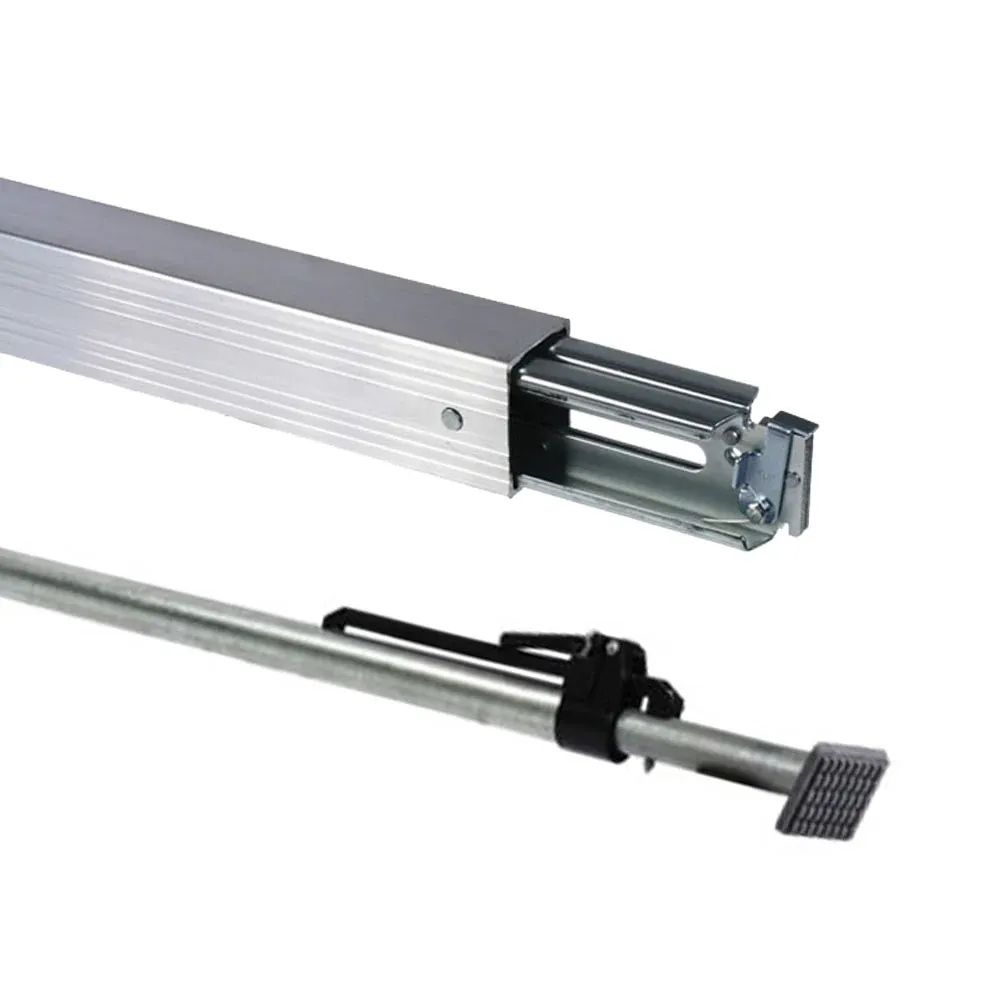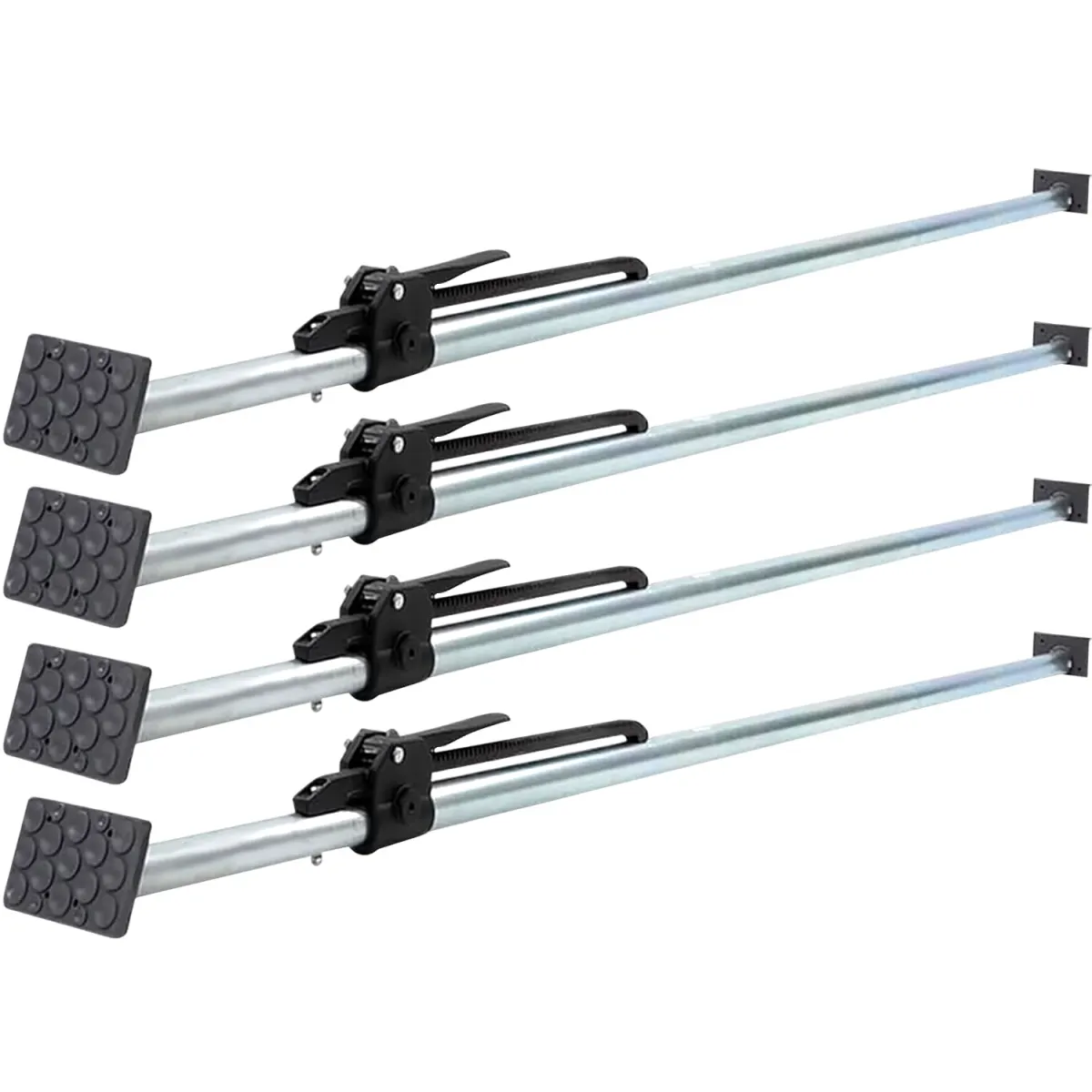Building a Secure Foundation for Cargo Protection
When goods are transported over long or short distances, the stability of cargo is a critical factor in preventing loss, damage, or accidents. Cargo bars have become one of the most practical and effective solutions for maintaining safety during freight movement. By creating firm barriers inside trucks, vans, or trailers, these devices ensure that loads stay in place, even on rough roads or during sudden stops. They are not just about convenience but about building trust in every delivery. Businesses and individual drivers alike benefit from the peace of mind that comes from knowing their cargo is properly secured. Cargo bars also reduce the amount of shifting that might otherwise lead to vehicle imbalance, making them an essential tool for road safety. Selecting the right cargo bars involves understanding their features, materials, and adaptability, all of which contribute to their role in freight protection. Beyond these basic functions, they also represent an investment in reliability, efficiency, and professionalism in transportation.
Role of Cargo Bars in Transportation Safety
Preventing Load Shifting
Cargo bars serve as physical dividers that stop goods from moving during transit. Load shifting is one of the leading causes of damaged items in logistics, but cargo bars greatly minimize this risk. By keeping everything in place, they protect both fragile and durable goods alike. Without such reinforcement, even a small bump could cause items to topple, creating chaos in the cargo area.
Enhancing Vehicle Balance
A balanced load is crucial for vehicle safety. Cargo bars keep items from leaning to one side, which could otherwise strain the suspension and affect steering. By maintaining equal distribution, they help drivers handle their vehicles more confidently. This stability reduces wear and tear on the vehicle while lowering the chances of traffic accidents linked to uneven weight distribution.
Types of Cargo Bars for Different Needs
Telescoping Cargo Bars
Telescoping cargo bars can extend or contract to fit varying cargo areas. Their adjustability makes them versatile for multiple vehicle sizes. These bars are especially practical for drivers who often switch between trucks or vans. Because they can be adjusted with ease, they are popular among those seeking flexibility in day-to-day operations.
Ratcheting Cargo Bars
Ratcheting cargo bars offer extra strength and security. Their locking mechanism allows for a firm hold that resists loosening during long journeys. They are highly valued in professional freight operations where stability is non-negotiable. Their sturdy design provides confidence, especially when transporting heavy or valuable goods that cannot afford damage.

Materials That Define Durability
Steel Cargo Bars
Steel cargo bars are recognized for their toughness. They can withstand heavy loads and repeated use without losing shape. This makes them ideal for industrial-scale freight where reliability is a daily requirement. With proper care, steel bars can last for years, making them a dependable investment for businesses.
Aluminum Cargo Bars
Aluminum cargo bars strike a balance between strength and lightweight convenience. They resist rust and are easier to maneuver, making them suitable for individuals or businesses operating in varied climates. Their lighter structure also makes them more user-friendly while still maintaining sufficient strength for most cargo applications.
Features That Add Extra Protection
Non-Slip Pads
The ends of many cargo bars come with non-slip pads. These pads increase grip on the vehicle walls while preventing scratches or dents. They improve stability even when the road conditions are less than ideal. This simple but effective feature ensures that the bars stay firmly in place regardless of the terrain.
Shock-Absorbing Designs
Some cargo bars are built with shock-absorbing features. These minimize the transfer of vibrations or sudden jolts, ensuring that delicate items remain secure and undamaged. Such designs provide an added layer of assurance when handling fragile shipments.
Practical Applications of Cargo Bars
Household Moving
Individuals often use cargo bars when moving houses. They help secure boxes, furniture, and appliances, reducing the chance of items toppling over during transportation. This makes moving simpler and more efficient. By preventing damage to personal belongings, cargo bars make the relocation process less stressful and more organized.
Commercial Freight
In business settings, cargo bars ensure that deliveries arrive in perfect condition. Companies benefit from reduced product loss and fewer claims, improving their overall efficiency and customer satisfaction. A reliable setup with cargo bars can even improve a company’s reputation for safe and timely deliveries.
Evaluating Cargo Bars for Purchase
Checking Weight Ratings
Every cargo bar has a weight rating that indicates how much pressure it can handle. Matching these ratings to the type of cargo being transported is vital. Choosing bars with higher ratings ensures a greater margin of safety. This careful matching prevents potential failures and guarantees that loads stay secure from start to finish.
Inspecting Build Quality
Build quality directly impacts the lifespan of cargo bars. Strong welds, durable coatings, and precise locking systems all point to better long-term performance. Investing in superior build quality means fewer replacements over time. In turn, this lowers maintenance costs and increases operational efficiency.
Maintenance of Cargo Bars
Routine Cleaning
Keeping cargo bars clean extends their service life. Removing dirt, grease, and moisture prevents deterioration. Regular cleaning also ensures smoother adjustments and better grip. A consistent cleaning schedule is an easy but essential part of maintaining equipment reliability.
Regular Inspections
Cargo bars should be inspected before every trip. Checking for bent frames, worn pads, or weakened locks helps prevent failures when they are needed most. Maintenance is the key to sustained safety. Drivers who prioritize inspections reduce risks and enjoy greater peace of mind during transportation.
Long-Term Advantages of Using Cargo Bars
Cost Efficiency
While cargo bars may seem like a small investment, they provide long-term savings by reducing cargo damage. They also minimize downtime caused by reloading or adjusting goods. Over time, the reduction in product loss translates into significant financial benefits.
Improved Safety Standards
Cargo bars play a direct role in meeting safety standards for transportation. By reducing accidents caused by shifting loads, they help businesses and individuals maintain compliance and protect lives on the road. They are not only tools but also an essential part of a professional safety culture.
Innovations in Cargo Bars
Advanced Materials
Modern cargo bars are being built with stronger, lighter materials that enhance both usability and durability. These innovations make them more convenient without sacrificing performance. They reflect the growing need for tools that combine reliability with ease of use.
Additional Features
Some models include integrated hooks or quick-release systems. These features add versatility and make cargo management even more efficient. Such improvements highlight the evolving role of cargo bars in logistics and their importance in modern supply chains.
Extended Benefits of Cargo Bars
Environmental Considerations
By reducing cargo damage, cargo bars indirectly help reduce waste. Fewer damaged goods mean fewer replacements, which ultimately lowers environmental impact. Companies that rely on cargo bars contribute to more sustainable logistics.
Professional Image
Using cargo bars demonstrates a commitment to professionalism. For businesses, this builds trust with clients who value careful handling of goods. For individuals, it signals attention to detail and responsibility.
FAQ
What size cargo bars should I choose
The size of cargo bars should match the interior dimensions of your vehicle. Measuring before purchase ensures the best fit and maximum effectiveness.
How do cargo bars protect fragile items
By securing loads and reducing movement, cargo bars prevent fragile goods from colliding with other cargo or vehicle walls, keeping them intact.
Can cargo bars be used in personal vehicles
Yes, cargo bars are widely used in personal vehicles such as vans, SUVs, or pickup trucks to stabilize everyday loads and household items.
How often should cargo bars be replaced
Cargo bars should be replaced when they show signs of damage, such as bent metal, weakened locks, or worn-out rubber pads. Regular inspections help determine the right time for replacement.
Table of Contents
- Building a Secure Foundation for Cargo Protection
- Role of Cargo Bars in Transportation Safety
- Types of Cargo Bars for Different Needs
- Materials That Define Durability
- Features That Add Extra Protection
- Practical Applications of Cargo Bars
- Evaluating Cargo Bars for Purchase
- Maintenance of Cargo Bars
- Long-Term Advantages of Using Cargo Bars
- Innovations in Cargo Bars
- Extended Benefits of Cargo Bars
- FAQ


